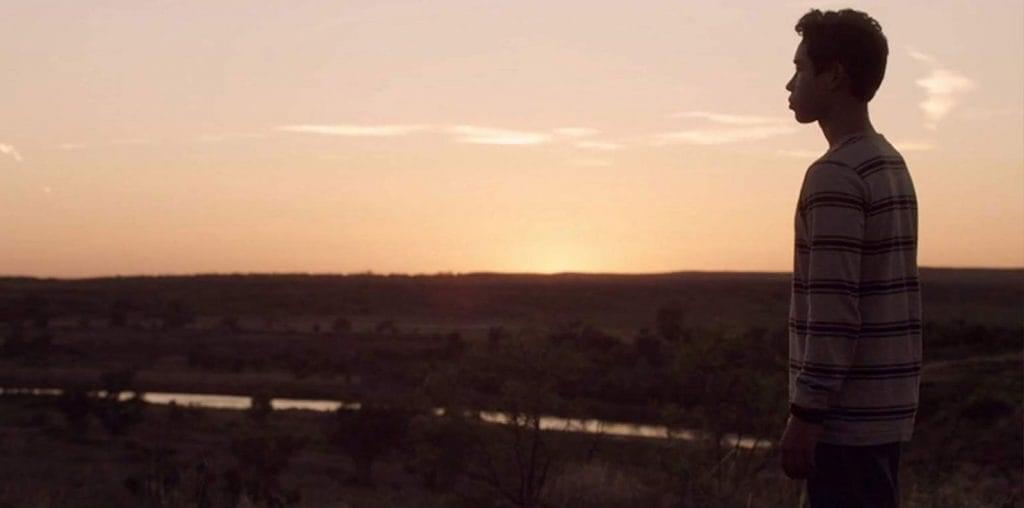
With grime wedged beneath its fingernails and sweat dripping from its Texan brow, “Cold in July” employs a brilliant tactic. “Wait,” White Lion’s gooey eighties power-ballad, closes Jim Mickle’s tough-as-nails crime drama, a film about home invasions, kids in peril, corrupt cops, and a snuff-film pornography ring. It’s the most ironic juxtaposition of vicious sights and bubble-pop sounds since “Jessie’s Girl” accompanied a sordid scene from “Boogie Nights.”
The reluctant hero of “Cold in July” is Richard Dane (Michael C. Hall, of “Dexter” fame). A passive picture-frame shop owner, Dane appears timid next to the brawling good ol’ boys inhabiting his town. This all changes when an intruder enters the home he shares with wife (Vinessa Shaw) and young son. Dane shoots him dead, blasting the burglar’s brains onto the ceiling. Local police soon identify the victim as Freddy Russell, a notorious lowlife and wanted criminal.
Overnight, Dane is lauded by his town as a take-no-s**t hero. He enjoys this unlikely claim to fame, but there’s a price to pay. Russell’s father, Ben (Sam Shepard), is a leathery, callous felon recently released from prison. Ben confronts Dane and vows revenge for the death of his son. Soon, he’s hanging out at the day care center where Dane’s tow-headed son plays on playground swings. This early passage of the film culminates in another break-in, with Dane again left to protect his family.
SPOILER ALERT: After a brief respite in which the danger passes, it becomes increasingly clear that things aren’t at all what they seem. Is Freddy Russell truly the man Dane shot? Are the cops hiding something? As circumstances become more questionable, “Cold in July” re-unites Dane and Ben not as adversaries, but as partners hell-bent on resolving the film’s quickly metastasizing mystery. They’re joined by Jim Bob Luke (Don Johnson), a pig-farming, Cadillac-driving sleuth who once fought alongside Ben on the battlefields of Korea.
“Cold in July” sandwiches Hall’s meek family man between two icons of seasoned machismo. Shepard’s age has made him more gruff and grizzled, but no less commanding than he was in “The Right Stuff” as pilot Chuck Yeager. Quietly charismatic, he’s chiseled from the same cut of rawhide as Clint Eastwood’s Man with No Name. Meanwhile, Johnson’s more extroverted, blue-eyed bluster and good-natured smirk are great antidotes to Shepard’s craggy squint. As the three men prepare for the film’s final showdown, Luke proclaims, “It’s howdy doody time!” Johnson brings dark comic relief to the trio’s grim mission.
Shepard and Johnson create an interplay that feels naturally lived-in. They’re convincing as blood-brothers bonded by combat. After Ben blows his top, intent on recklessly taking out the bad guys, Luke pushes a pistol against his forehead. “Do you feel me?” he coolly asks, in a kind of dangerous tough love that could only be shared by battle buddies. Suddenly re-thinking his hot-headed strategy, Shepard slowly sighs, “Yeah, I feel you.”
Bursting with testosterone might, the final stretch of “Cold in July” burrows down into a dark cesspool inhabited by porn profiteers who batter unsuspecting prostitutes on film. It’s a perfect setting for righteous carnage, a crackling throwback to the grungy revenge finales of “Rolling Thunder” and “Hardcore.” And in spite of itself, we relish Mickle’s genre clichés, like the slo-mo shot of our three heroes strutting towards us, armed and ready to kick a*s. This recycled Western image might be familiar, but it’s also cool. Damn cool.
The spirit of John Carpenter can be felt within the film’s throbbing synth score, and seen in its muted colors. During the initial home invasion scenes, walls are awash in blue tints and dancing shadows reminiscent of “Halloween.” Late in the film, a depraved crime den appears slathered in garish colors, hinting at the carnival of horrors taking place within.
“Cold in July” harkens back to the days of tough seventies thrillers. It pulsates with a no-frills real-ness that’s almost novel in our current age of CGI fakery. Meanwhile, it bounces us around with some truly novel plot twists. And even though its detours are unexpected, they’re easy to navigate. This isn’t some convoluted mystery bogged down by confusing exposition, and Mickle tells his story with clarity.
Most amazingly of all, Mickle succeeds in making White Lion sound good. And that’s one helluva feat.

